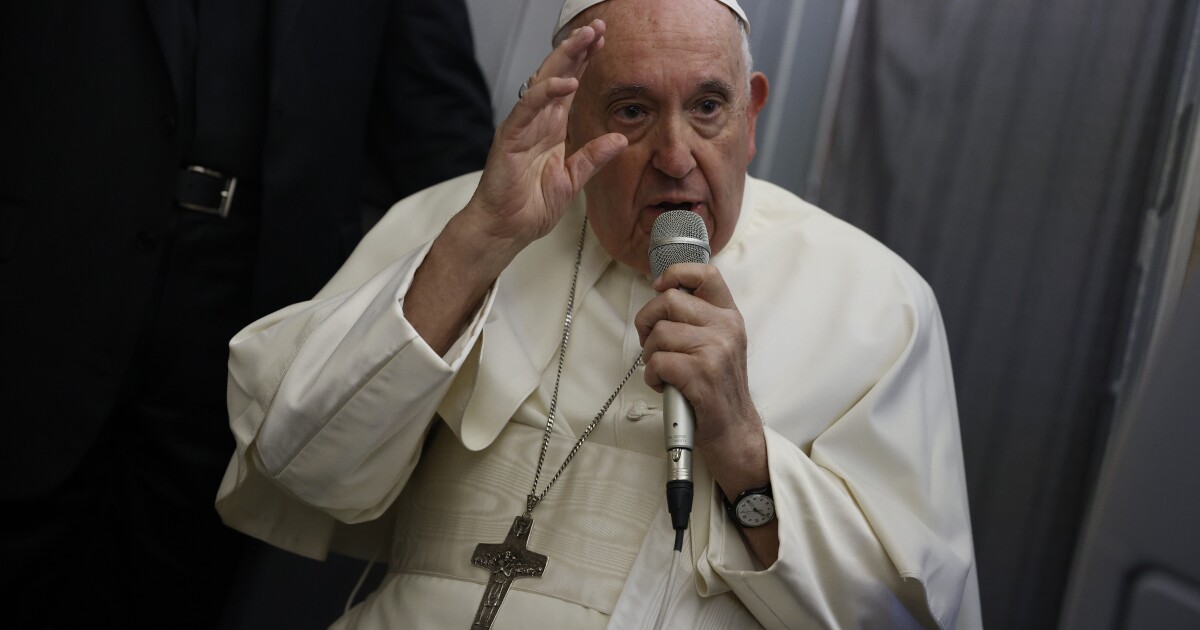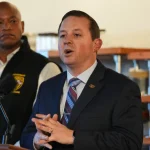

Pope Francis admits he must slow down.
“I think that at my age and with this limitation I have to cut back a little bit to be able to serve the Church or on the contrary think about the possibility of stepping aside,” Francis said on Saturday while sitting in a wheelchair as he spoke to reporters aboard the plane traveling home from his weeklong trip in Canada.
Francis, 85, stressed that he had not considered resigning but said his age and difficulty walking has brought him to a slower phase of his papacy.
“I don’t think I can continue doing trips with the same rhythm as before,” he said. “But I will try to continue to travel in order to be close to people because it is a way of serving.”
‘CLASS ACT’: CANDACE CAMERON BURE PRAISED FOR TAKING HIGH ROAD AFTER ‘RUDE’ ATTACK
More recently, Francis has used a wheelchair, cane, or a walker to help as he dealt with knee pain caused by a fracture and an inflamed ligament.
The pope said he preferred not to have knee surgery because of the negative side effects of anesthesia experienced last year following an intestinal operation.
“This, with all honesty, is not a catastrophe. There can be a change of popes, there is no problem with that,” Francis said. “The door is open. It is one of the normal options. Up until today, I did not use that door. I did not think it was necessary to think of this possibility but that does not mean that the day after tomorrow I don’t start thinking about it.”
Francis said the trip to Canada was “a bit of a test.”
“It is true that I can’t make trips in this condition. Maybe the style has to change, make fewer trips, make the trips I have promised to make, re-jig things. But it will be the Lord who decides,” Francis added.
The pope promised he would still visit places he had already promised to go, such as South Sudan, Democratic Republic of Congo, Lebanon and perhaps Kazakhstan before deciding on future trips.
CLICK HERE TO READ MORE FROM THE WASHINGTON EXAMINER
Before leaving Canada, Francis referred to the massacre of indigenous schoolchildren as a “genocide” after earlier calling it a “cultural destruction” when apologizing for the residential school system that was prominent in Canada from the 1890s to the 1940s.







